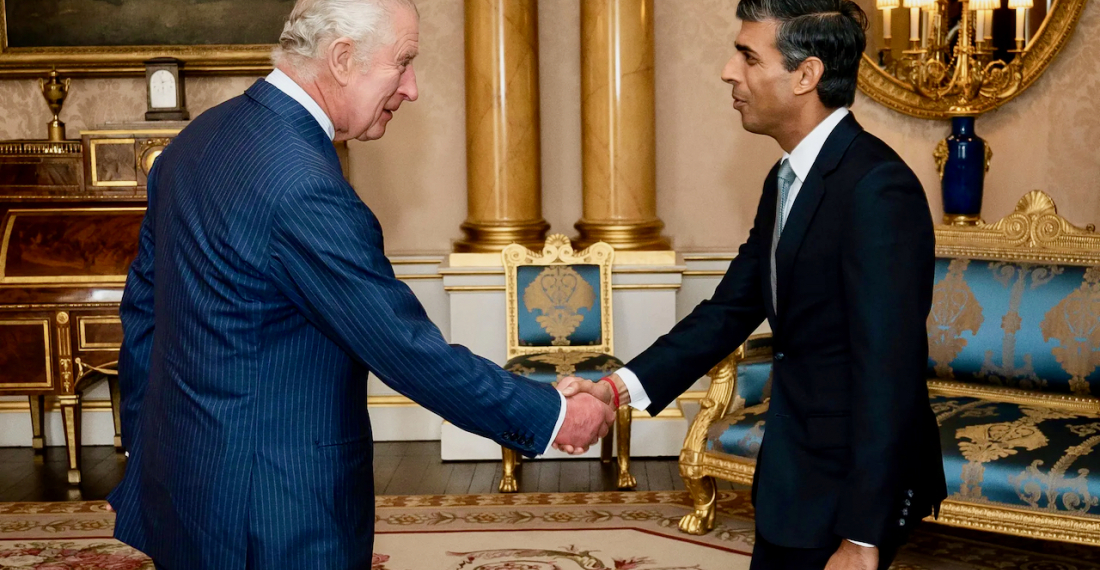42-year-old Rishi Sunak was sworn in as the youngest UK Prime Minister in modern times on Tuesday (25 October), succeeding his party colleague Liz Truss as prime minister. He was mandated by King Charles III at Buckingham Palace to form a new government after Truss resigned today.
In his first address as prime minister Sunak said that he wanted to unite the country and try to shore up the economy. "I will unite our country not with words, but with action. I will work day in, and day out to deliver for you. This government will have integrity, professionalism, and accountability at every level. Trust is earned and I will earn yours." Sunak said.
Sunak listed the challenges facing the British people. "Our country is facing a profound economic crisis. The aftermath of COVID still lingers. Putin's war in Ukraine has destabilised energy markets and supply chains the world over." he said. "I was elected as party leader and prime minister to address these challenges. The work starts today," Sunak said. The prime ministers further promised "better schools, safer streets and controlled borders". "I know we are in a difficult situation and have a lot of work to do to restore confidence. But I am ready to lead our country."
Sunak was elected on Monday (24 October) by the Conservative Party as its new leader. This automatically makes him the country's new prime minister. After Boris Johnson's resignation in July this year, he attempted to become party leader but lost to Truss then. When she announced her departure on Thursday (20 October) after a weeks-long political and financial crisis, Sunak stood foragain for election.
Sunak's premiership is significant news in India. "It is a moment of pride for India that the country which ruled us for many years has now a prime minister of Indian heritage," a man from New Delhi told news agency AP. The message "Indian son rises over empire," appeared on Indian television on Monday. Indian Prime Minister Narendra Modi said he looks forward to working with Sanuk.







